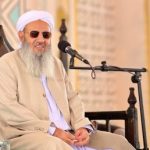 As Britons keep their eyes focused on the awaited trial of Woolwich attack suspects, the Muslim minority are still preoccupied with correcting their image widely damaged after the attack.
As Britons keep their eyes focused on the awaited trial of Woolwich attack suspects, the Muslim minority are still preoccupied with correcting their image widely damaged after the attack.
“I’ve grown up here all my life,” Shaynul Khan, assistant director of the East London Mosque, who considers UK still one of the best places in the world to be a Muslim, was quoted by the Deutsche Welle on Monday, November 18.
“I consider no other place home other than Britain. And I think the liberties that I’m offered here are far better than anything I would see across the globe.
“So I’m really proud to be living here in Britain.”
British Muslims and mosques have been potential targets for dozens of attacks after the killing of a British soldier in Woolwich, south London, last May.
A video showed the attackers, who are Muslim converts of Nigerian origin, blaming British policies for the killing and calling on Britons to remove their government.
British Muslims have condemned the machete killing as contradicting with the basic teachings of Islam.
“What happened in Woolwich was unspeakable and it’s not something that anyone can forget in a hurry,” Khan said.
“So I think the impact of that will still continue to linger on with us for a while to come.”
Amid a Muslim outrage of the grisly murder, British officials distanced Islam from the killing of an army cadet.
“We heard many incidents of mosques and other institutions, as well as people, being attacked in the wake of the Woolwich incident,” Khan explained the fears among UK Muslim community after Woolwich attack.
“So I think at that time the community was gripped by a certain degree of fear.”
Far-right groups, like the English Defence League (EDL), have intensified their radical activities against the Muslim community after blaming Islam for the solider killing.
They organized a number of anti-Islam marches in London, where violence was reported and dozens of protests were arrested.
Yet, EDL’s protests were repeatedly faced by marches and demonstrations held by anti-fascism groups such as Unite Against Fascism (UAF) and Hope not Hate group.
Youth Centre
Disassociating them from radicalism rhetoric, a growing number of Muslim community groups in UK tried to offer youth a true Islamic education.
“We find that sport is a very good tool,” Abu Mumin, program manager at Osmani Youth Centre in east London, told DW.
“Sport is a language that everyone understands and it’s a good way of engaging young people from all types of races and faiths.
“It’s one of our more successful programs.”
Quilliam foundation, a UK Muslim think-tank that pledges to counter radical views and to encourage “Western Islam”, has also advocated similar opinion.
Usama Hasan, a member of Quilliam Foundation has praised the progress that the Muslim community has made since London 2005 underground attacks.
“One of the silver linings from the Woolwich incident was that ordinary British Muslims really felt a strong sense of revulsion, as the whole country did,” Hasan said.
“And their reaction was ‘enough is enough.”
Britain has long known political violence on the streets.
In 2009, two British soldiers were shot dead outside a barracks in Northern Ireland in an attack claimed by Irish republicans.
Britain’s 2.7 million Muslims have taken full brunt of anti-terror laws since the 7/7 attacks.
A Financial Times opinion poll showed that Britain is the most suspicious nation about Muslims.
A poll of the Evening Standard found that a sizable section of London residents harbor negative opinions about Muslims.
Source: OnIslam










Comments